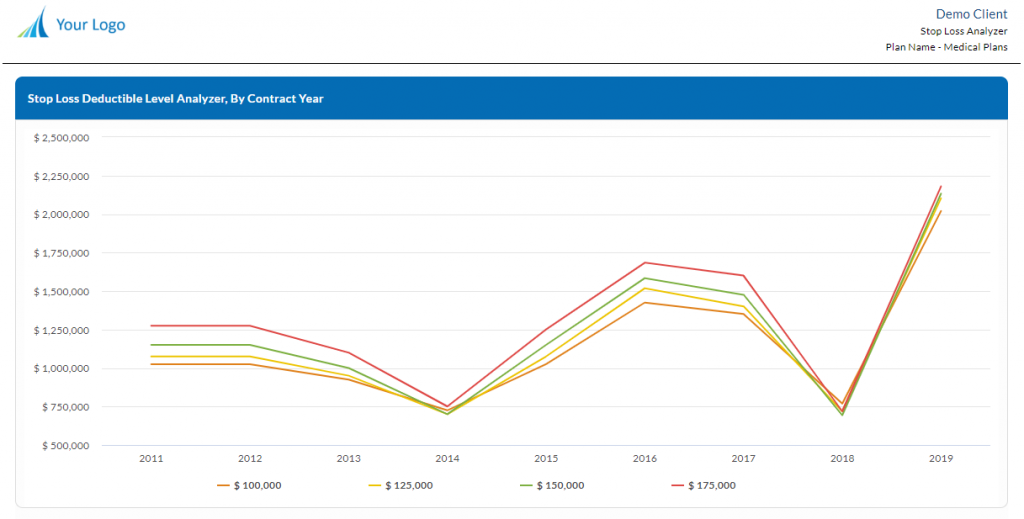Category Archives: Uncategorized
- How are plan operations improving by leveraging health claim analytics?
- What improvements are being made to broker & client reporting?
- Can the stop loss claims claim filing & payment process be streamlined? Automated?
- Can the reinsurance quoting process be improved?
- What role can Employee Apps play in member engagement and claims reduction?
- How are health analytics being used to improve healthcare?
Join our diverse panel for a conversation on these topics, and more. Our speakers will be:
Mark Combs – President of SelfInsuredReporting.com, a leading health claim analytics and reporting platform. He is also CEO of PlanWellHealth.com, an employee app that leverages claims data to deliver better health interventions.
John Collier – President of ProactiveMD, a leading Direct Primary Care company offering health management solutions to employers across the country.
Scott Ogburn – Senior Vice President and Consultant at ECM Solutions. Scott is veteran benefit consultant with significant expertise deploying cost containment strategies including population health, direct contracting and direct primary care.
-
Even if you’re healthy right now and have been your whole life, there is still a chance that you could get hurt or sick, no matter how hard you try not to. According to Debt.Org, the average daily hospital stay is around $3,949 – just for one day! Health insurance can help you with those bills that without it could become an astronomical bill.
-
Insurance is needed for people of all ages, including your children. Being able to provide for them throughout their childhood and leading up to their own adult lives is the number one priority for most parents. Insurance today can cover your children up until they’re 26, allowing them to ease into their financial responsibilities as an adult, and for you to help them out and continue to help care for them.
-
Health insurance can provide more care and coverage than you might realize, including re-existing conditions you had before even stating your current or new insurance plan. Insurance can cover and help with chronic disease management, mental health and substance abuse, preventative services, and much more!
-
Those who are uninsured are at a higher risk of death. They, by percentage, receive less medical care, less timely care, and worse health outcomes according to the Urban Institute.
-
Health insurance can help you avoid a new or existing condition get worse by receiving the proper medical care without fear of the cost.
-
If you or a member of your family is diagnosed with a very serious disease or with a heart condition, you’ll be able to receive treatment sooner.
-
Today, more universities and colleges are requiring that their students are covered by health insurance as part of their admission. The lack of not having it could prevent you from going back to school or being any to get any higher education.
-
People choose to insure and protect their fancy cars and expensive possessions, many of which can be replaced. You, on the other hand, cannot be replaced. Why would you ever choose not to also protect yourself?
-
Not having health insurance doesn’t just affect you. Many uninsured people choose to not receive preventative care or get a condition looked at until it has to be. These resulting medical bills can be as high that they end up going unpaid, leaving the hospital financially in a tough place. This can force them into charging more for any service for anyone that comes to the hospital as a result.
-
Health care provides free preventative care, even if you haven’t hit your deductible!
 You’re in the market for new insurance, but you want a professional to help with the process. Should you work with an Insurance Agent or Insurance Broker? What’s the difference between the two and which is best for you?
You’re in the market for new insurance, but you want a professional to help with the process. Should you work with an Insurance Agent or Insurance Broker? What’s the difference between the two and which is best for you? -
Both an agent and a broker much be properly licensed to do their job within the state they’re working out of.
-
Both must follow and adhere to specific insurance laws within their state.
-
They both act as middlemen between the insurance companies and those looking to buy policies.
-
It is the legal duty of both to help you find and choose the best insurance policy and coverage at a reasonable price.
-
They can both work on commission or salary. Make sure you know which your agent or broker is working under. This can come as quite a surprise at the end of your partnership if you’re unaware.
-
They both could have accreditations in their titles. There are so many out there for the insurance industry, that it can be a little overwhelming. Don’t hesitate to ask what they are and how it helped them advance their career.
Social media has taken the world by storm, why not use it to your advantage to help grow your insurance business?
Using social media to your advantage can not only make your life easier, but it can also escalate your career. As much as it might seem like a lot of extra work to use in your workflow, we guarantee that if you use it to your advantage and approach it from a practical standpoint, the benefits from it can be huge.
If you’re new to the social media world for your insurance company, that’s ok. The first step in all of this is to not get overwhelmed or rush the process. If you do, that can get you into more trouble than it’s worth. Start by picking two social media platforms, like Facebook and Twitter, to begin working on. Create your business accounts and make sure you understand your brand, your target audience, and how to speak and reach out to them. Make sure your profiles are consistent and reflect your brand. Make sure your whole team and advertisement team understand the brand and your voice before you begin posting and using social media. Create interesting content that represents your brand, company, what you specialize in, and what grabs your target audience’s attention. Post articles and information that pertains to your audience and their coverage.
Positively use social media. Support your community and your audience, don’t just try and sell something all the time. That will turn your audience off very quickly. Make sure you use social media to listen to your audience, what they want, what they find to be lacking, and how they think their coverage could be better. This is free constructive advice to help you offer what they need and prove that you’ve been listening. This will put you far ahead of your competitors and help you continue to gain more leads and new clientele. Always show the human side of your company and employees. Your clients want to be able to relate to who they’re working with, and social media is an exciting and unique tool to do so. With that in mind, we wanted to share a few more tips, ideas, and suggestions on how and why social media can help your insurance company grow and prosper.
- Not only can you stay connected to your community and your target audience, but you can also keep track of your competitors and see exactly what they’re doing, how they’re talking to the audience, and beyond. It’s a way to stay one step ahead and to keep your customers loyal to you.
- Listening to your audience can help create content, answer questions they’ve been asking, and offer special deals and opportunities. When you listen to your audience, its a show of appreciation and a way to validate their concerns and wishes.
- Make sure you’re paying attention to your analytics and data that your social media platforms collect for you automatically. It can give you an in-depth look into who your target audience is, when they are online, and where they are located. This can help you adjust your content and make it even more direct.
- Social media gives you a great opportunity to speak directly and naturally to your audience in unique ways. Use tools like going live on Facebook or your stories on Instagram to spend time speaking with your audience and answering their questions is a modern, fun, and relaxed environment. Don’t be afraid to get creative and don’t be afraid to use the tools you have. It can help your audience get to know you and your brand quicker.
- According to Agent Methods, even though it is one of the oldest platforms, Facebook is still one of the best tools to use for marketing and growing your business. Many companies think it is past its prime. So, good news for you, it is an underutilized tool waiting for you to take charge of.
- Make sure that your website is connected to all of your social media platforms and vice versa. A strong social media presence can be paramount to gain a ton of traffic to your website. Don’t hesitate to use a call to action in your content and your posts. Invite your audience to visit your website, and to visit all of your platforms. A call to action should be something frequently used when creating content.
- You can use social media to promote your excellent customer service. You will get a lot of questions, comments, and messages on your platforms. Make sure to answer all of them and promptly. Your audience and clientele will come to know that your platforms are a safe place to answer questions, to get answers, and know it will happen quickly. It can give your company and brand a consistent positive outreach and reputation.
Twitter and Facebook are incredible platforms for business right now. Twitter can be a very reliable source to not only share relevant and valuable information on what you offer, but it is also a great tool to keep up with the news and what is happening in the world. Knowing how your product can help during times of crisis and how your industry could be affected is all part of the job. You need to be there for your community as an insurance company, know how to speak with them and guide them, and how to prepare as a company for what’s coming. Using Twitter to do so can make this process as pain-free as possible. Facebook is becoming a tool for an older demographic. This demographic could be looking for new insurance policies or better opportunities than they have now as their children leave for college, as they retire, and so on. As we mentioned above, Facebook is an underutilized tool. These are great examples of potential clients just waiting for you to jump up and reach out. Why wouldn’t you use them?
Remember to use all social media platforms to build relationships. You want to show that you’re a reliable company that has families and needs just like your clients do. People want to trust who they’re working for, and that’s not a company that just promotes business and sales all the time. That is a cut off and robotic approach that will turn any audience away faster than you can say social media. It is a very unique time for social media. This year has driven us to our phones and homes than any in history. Why not use this time to connect to more people, build relationships, make more sales, and build your company? All you need to do is get started. Please continue to stay safe, and never hesitate to reach out and communicate with us. We are looking forward to hearing from you soon.
Growing in your field, excelling, and providing the best care to your clients needs to be on your list if you want to continue to be the best insurance broker. Here are some more tips and suggestions on how to make sure you continue to grow.
Pushing yourself to grow within your job and industry is so important. It is a successful tool to stay ahead of your competitors, represent your company, and to move up within your job. The insurance industry is always changing and growing as new demands in insurance become common policy. Needing to stay up on your job and the industry as an insurance broker is imperative if you want to stay ahead. Also, you need to do so to offer your clients the best product possible. We want to help you continue to grow and succeed in the industry so, here are some tips and suggestions on how to truly succeed as an insurance broker.
Although the title can be a little misleading, an insurance broker doesn’t work for an insurance company. They work for the client. Almost like a middleman between the product and the consumer. They do a slew of important things for their client such as providing advice on what insurance options are best for them or their company. They point out a risk or exposure within their company and suggest what should be insured based on that information. Insurance brokers always have their client’s wants and needs in their best interests.
That being said, there are many unique skills and traits that you as the broker should work towards. If you’re looking for an insurance broker yourself, you should keep an eye out for these particular traits, too.
MOVING ON UP!
- Since the broker is representing the client, integrity and going the extra mile to find the right plan and price for any client is imperative. Just trying to make a quick sale or one that feels rushed is one to avoid. The broker is representing not only the product they’re offering, but it is also a situation where they are representing themselves. If one or both is being neglected, that is not a good sign of a good broker.
- Brokers, if you want to continue to stay successful, your work ethic needs to be flawless. Being able to stay organized, use your time wisely, and creating strong relationships with those in your industry and with your current and future clients is a must. Even though you are on the side of the client, you are still a salesperson. Make sure your skills are sharp, you’re up to date in the industry, and attract future clients that will bring you future business.
- Admittedly it is a hard business to keep up with, but no one is going to be there to help you up to the next level or do anything for you. Never feel entitled to these things, it will trip you up. If you want to make moves towards that next step, you’ll need to put in the work yourself. Make sure to be open to learn more and take every opportunity that arises that could help you. If you can place yourself in a situation with a great mentor or teacher, jump at it. These mentors have been where you are and understand the difficulties you could be going through. They can offer advice to get you out of any rut you’re stuck in.
- In this day and age, you need to be up to date with all the technology at your fingertips. This includes what helps promote what you’re selling, how to stay connected to your clients, and how they are looking at and finding information on possible plans.
- On top of your good salesmanship, it’s important to have excellent communication skills. Writing a good email, making a successful phone call, preparing presentations, and even pinning the occasional thank you note are things that should always be in your arsenal. Selling something is one thing, but being able to continue to communicate past that initial sales pitch is what will keep clients coming back!
Do you think you have everything it takes to become an excellent insurance broker? Remember, being dedicated to your job is very important. Make sure to continue to find a good balance between your personal and professional life. A cultivated personal life will support and nourish your professional life. Please continue to stay safe, and never hesitate to reach out and communicate with us. We are looking forward to hearing from you soon.
We are in the business of helping your company offer and manage the best self-insured health plan for your employees. How can you help promote the best quality of life for yourself and your employees that each of you will want to insure?
Our day to day lives have taken quite a spin in the last few months. Learning how to live safely has taken the front seat over how to live with joy and passion. It has affected our moods, our health, our mental health, and our relationships. Working from home, living in our pajamas, and getting out of our routines has thrown us all for a loop. This isn’t to say that we’ve not gotten our jobs done, our bills paid, and our families fed. But, the quality of our everyday lives has taken a very strange turn. Thankfully, for some of us, this time has given us a chance to stop and smell the roses, spend time with our families, and finally read those books that have been piling up on our desks. But, we’ve had face masks, shortages on toilet paper, a deluge of media coverage, and fear peppering the corners of our lives with our roses. Many states are slowly starting to open up and make moves towards returning to a sense of normalcy. Many of us will be returning to work full time or back to more hours than we’ve been working for the last few months. As we all go through another drastic change together, how can we keep up with and continue to improve our quality of life?
- Parents in The Workforce
For parents working from home full time, while balancing caring for their children and helping them finish their school year virtually, we know you’re exhausted. It’s gotten to the point now that it’s a part of who you are and not something that you can hide. You’re shoving a full workday into the odd hours when your children are asleep, occupied, or eating. This is leaving you with no free time and the feeling that all you’re doing is working. As we move forward in the current state of things, the idea that because your employees are working from home, it makes them available to work 24/7, needs to be tossed. If we continue to work and educate from home, we need to respect our employee’s time and their situations. Allowing flexible work hours, work arrangements, and adjustments needs to be met with an open mind and understanding, not punishment. The conversation needs to happen together to ensure that productivity remains, and the family balance isn’t thrown out of whack. In the same vein, while working from home, you need to give yourself space and time away from work. Allow yourself the room to live your life and enjoy the things you love.
- Pride in the Work
When you wake up to get the work week started, are you drained and dreading getting out of bed? The need and importance of a job right now weighs heavily on our minds as the unemployment rate continues to skyrocket. But for those still working, the realization of how much you do or do not enjoy your job has become more evident. Your job is a large part of your identity. If it’s just a situation that’s just paying your bills, explore the job, and find joy whereever you can. Were you able to learn something new? Have you stayed productive while working from home? Did you help someone today? Did you complete a difficult project on time and with excellent skill? Finding pride, meaning, and joy in any job you do is important to your productivity, mental health, and your daily life. Overcome the challenge of being stuck in a position you hate and help those around you to overcome it too. A job you struggle with could quickly turn into a passion and joy.
- Counting the Clock
Time is always something we want more of, want to speed up, or want to slow down. In any professional environment, managing your time can be a key to success in your job and a rewarding outcome in the quality of your life. Avoid being a perfectionist and doing everything at the same time. This is the equation for becoming overwhelmed and miserable, and while trying to accomplish everything, you will end up getting nothing done. Allow yourself to focus on one task at a time, allow certain times of the day to be dedicated to certain activities and tasks, and use smart apps to track your time and schedule. Managing your time well will help keep your focused, driven, and feel accomplished at the end of your workday.
Maintaining a healthy relationship with your job and your quality of life is key. Our jobs are a part of our identity, but not the whole reason behind who we are and the joy we take in life. As an employer, we need to continue to respect our employees. As an employee, return that respect with an outstanding quality of work done in a productive and timely fashion. We work hard to keep our employees healthy with the best quality of self-insured health care. Let’s make sure their whole lives reflect this ideal with the highest quality of life possible.
What Do You Know about Self Insured Group Health Plans?
What is a Self-Insured Group Health Plan?
Often referred to as a ‘self-funded’ plan, a Self-Insured Group Health Plan is one where an employer assumes the financial risk associated with providing health insurance to its employees. An employer that elects to “self-fund’ is opting to pay for every out of pocket claim that is incurred by employees. This contrasts with a fully insured plan in which the employer would pay a fixed premium to an insurance carrier.
Why Would and Employer Choose to Go Self-funded?
While every employer has their own reasons for choosing a self-funded insurance option, here are some of the most common:
- Employers do not have to pay for coverage up front to an insurance company. This can help create cash flow for their businesses.
- Employers are free to engage with Drs and provider networks that are best suited to the healthcare needs of their specific employee population.
- The employer can “tailor” their benefits offering to fit the specific needs of their employees. While using claims analytics systems and reviewing plan details employers can customize their plans as needed.
- Reserves not being used for current healthcare costs can garner interest for the employer which creates yet another line of cash flow.
- Employers who Self-fund are not governed by state law, but rather are regulated under federal law.
How Can a Self-Funded Employer Protect Themselves Against Large Medical Claims?
In order to protect themselves against large unforeseen and unpredictable claims, Self-Funded employers purchase what is known as Re-insurance. This is also referred to as Stop-Loss insurance and is designed to reimburse employers for large claims that go above a pre-determined dollar level. This is not a health insurance policy but rather a legal contract between the stop loss carrier and the employer.
How Are Claims Administered on A Self-Insured Group Health Plan?
While some Self-funded employers handle all the administration of employee claims themselves, most choose to outsource this elsewhere. A Third-Party Administrator or TPA for short, is used to process claims, provide data on claims and trends, coordinate the stop-loss coverages, work on provider network contracts and more.
What Law Are Used to Regulate Self-Insured Plans?
As mentioned previously, Self-funded insurance plans to not fall under local or state law. They are instead regulated by federal law under the Employee Retirement Income Security Act (ERISA). Other agencies such as the ADA, COBRA, HIPAA and DEFRA are also used to oversee and regulate these plans federally.
I’m Not Sure Its For You But Self-Funded Health Care Can Save You Money
Many businesses across the country are finding themselves with the same problem, rapidly rising health plan costs. Every year employers loath having to price new health plans for their employees. The employer gets a ton of quotes from carriers, they end up going with the least expensive which usually isn’t very good for the employee, and then next year that rate jumps up even more.
Because of this never-ending cycle of rising health insurance costs, more and more employers are moving to Self-insured healthcare plans (Otherwise known as Self-funded). Under this type of plan style, employers themselves are the ones who pay for the health benefits being provided to the employees. The employer assumes the risk of paying the claims rather than using the more traditional model of letting the insurance company take on that risk.
This type of Healthcare plan option became popular back in 1974, after a new law exempted Self-Funded plans from State regulation. Ever since then the model has moved down market to smaller and smaller companies.
Due to Healthcare Reform among other things, companies are wanting to take more control over their Healthcare spend. By setting up these types of plans, employers are now able to control more readily the costs associated with offering group health insurance.
Is it all sunshine and rainbows?
Wherever there is a payoff, there is an inherent risk. Even though companies who switch to Self-funding do not have to deal with paying premiums to insurance carriers, they do have to pay all the employee medical claims.
Typically, a Self-funded plan is administered by a Third-Party Administrator or TPA for short.
Due to the enactment of the Affordable Care Act in 2010, health insurance pools of covered individuals now include sicker and therefor more expensive individuals. This is mainly due to the provision of the ACA law the prohibits insurance companies from denying coverage to an individual based on pre-existing conditions. In addition, not enough young and healthy people have enrolled to offset the cost of the more high-risk claimants.
The result is that the costs of fully insured group coverage has been soaring. This has led the movement of smaller employers with healthy workforces to consider Self-Funded group insurance options.
More Control Through More Data
An additional perk to self-funded insurance is that the employer has more freedom in plan design and structure. Self-Funded employers can partner with private reporting and analytics companies to look deeply into their own healthcare data. Reports on claims, health trends, claimants, conditions, and the financial health of the plan are all available with the press of a button.
From this data Self-funded employers can know specifically where their largest and most costly claims are coming from. In addition, data on provider utilization is available and therefor employers can better communicate to their employees the various ways they may be able to save money on their medical care.
This new trend in Healthcare cost transparency is leading the migration into Self-Funded plans and saving money for employers all over.
- 1
- 2














